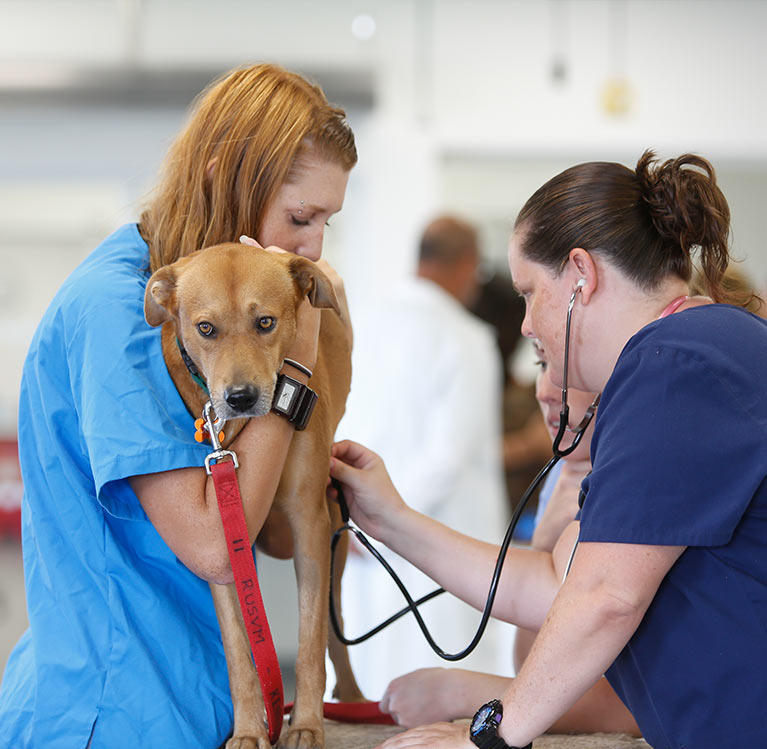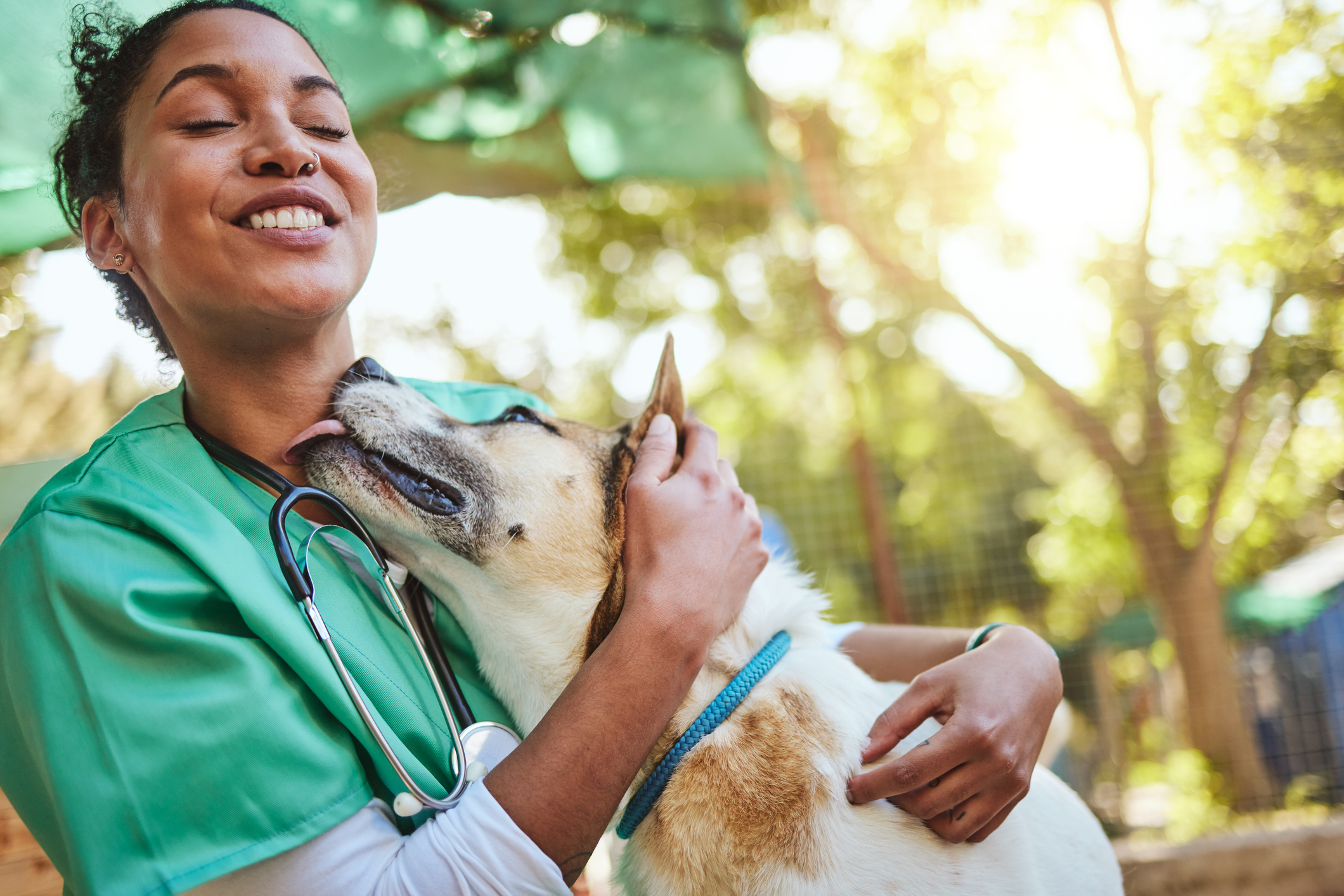Inoculation Guidelines From Your Trusted Veterinarian
Inoculation standards provided by your relied on vet play an important duty in securing your family pet's wellness and well-being. Core vaccinations are basic for all pets, while non-core vaccinations can be tailored to specific way of livings and ecological direct exposures. Recognizing the subtleties of inoculation timetables, which start as early as 6 to eight weeks, is vital for ideal security. In addition, dealing with typical misunderstandings bordering injections can even more boost family pet owners' self-confidence in these precautionary steps. As we explore these important elements, it ends up being significantly clear why normal assessments with your veterinarian are crucial for educated decision-making.

Significance of Vaccinations
Inoculations play a crucial role in safeguarding pets versus a series of avoidable illness. By boosting the immune system to identify and combat certain virus, injections dramatically decrease the occurrence of contagious conditions that can influence a pet dog's health and wellness and durability. Not only do vaccinations protect private animals, yet they likewise add to herd resistance, thus reducing the total occurrence of diseases in the pet dog populace.
Timely inoculations assist to reduce the spread of illness such as rabies, parvovirus, and distemper, which can have serious repercussions for both pets and humans. Inoculations are typically a need for boarding facilities, grooming solutions, and canine parks, making them important for those who want to socialize their pet dogs.

Core Vaccinations for Pets
While the details inoculation demands of pet dogs can differ based on private elements, core vaccinations are globally advised to safeguard versus one of the most significant and typical conditions (Vet Enterprise). Core injections are those deemed vital for all pets, despite their way of life or geographical location, as they protect versus extremely contagious and possibly deadly diseases
For pets, the core vaccines include those for canine distemper, parvovirus, adenovirus (liver disease), and rabies. Adenovirus can result in liver disease, while rabies is a zoonotic condition that presents a threat to both human beings and family pets.
In felines, core vaccinations include feline panleukopenia, feline calicivirus, feline herpesvirus (rhinotracheitis), and rabies. Feline panleukopenia is a highly infectious viral illness that impacts the immune system and intestines. Calicivirus and herpesvirus are major factors to top respiratory infections in cats, while rabies continues to be a critical worry for public health.
Seek advice from your vet to guarantee your family pets obtain their core vaccinations on time.
Non-Core Vaccines Explained
Non-core vaccines are tailored to attend to specific dangers connected with a pet's exposure, lifestyle, and environment to particular diseases. Unlike core vaccines, which are universally recommended for all pet dogs, non-core vaccinations are thought about based upon individual circumstances. These injections are particularly essential for animals that may experience special virus because of their geographical location, traveling routines, or activities.
Instances of non-core injections include those for Bordetella bronchiseptica, which is connected to kennel coughing, and Lyme illness, triggered by ticks. Pet dogs that frequently engage with various other animals, such as those in boarding centers, pet dog parks, or grooming atmospheres, may take advantage of Bordetella vaccination. If you live in a location where Lyme illness is prevalent, immunizing versus this disease can be a prudent selection for outdoor-loving dogs.
Various other non-core vaccines might consist of those for leptospirosis, canine influenza, and feline leukemia, depending on the details threat factors existing. It is necessary to have a thorough discussion with your veterinarian regarding your pet dog's lifestyle and the my sources prospective requirement for these injections, guaranteeing a tailored inoculation technique that finest secures your fuzzy good friend.
Vaccination Arrange Summary

As family pets grow, it is essential to stick to the advised booster vaccinations. Pet Health Checkup. For grown-up pets, core injections are generally offered each to 3 years, relying on the details injection and neighborhood regulations. Non-core injections might be encouraged based on way of life variables and local condition prevalence, necessitating a customized strategy
Regular veterinary examinations are critical for updating vaccination schedules. Your veterinarian can supply advice on the most appropriate immunizations for your family pet, considering age, health status, and ecological threats. By staying aggressive and notified, animal proprietors can ensure their furry companions receive effective and prompt inoculations, consequently securing their health and health throughout their lives.
Typical Myths About Vaccines
Mistaken beliefs concerning family pet inoculations can cause confusion and hesitation amongst animal owners relating to the booster shot procedure. One widespread misconception is that vaccines are unnecessary for indoor animals. While it's real that indoor pet dogs face lower dangers, they are not entirely immune to conditions, as virus can be presented with numerous methods, including human apparel and various other animals.
An additional false impression is that injections can cause the conditions they intend to stop. In fact, a lot of vaccines contain inactivated or attenuated microorganisms, which can not create disease in healthy animals. Some pet dog owners additionally believe that their pet dogs need to not be immunized if they are currently healthy; however, inoculations are a positive action that assists protect against the beginning of disease.
Furthermore, numerous family pet proprietors are afraid that vaccinations will lead to long-term health problems. The advantages of inoculation-- securing pet dogs from possibly deadly illness-- far outweigh the risks.
Conclusion
In summary, adherence to vaccination guidelines is vital for ensuring the health and longevity of pets. Core vaccinations give essential protection against serious diseases, while non-core vaccinations resolve specific risks based on private way of livings. Developing a thorough inoculation schedule, together with normal vet check-ups, promotes optimum wellness management. Eliminating typical misconceptions bordering inoculations better reinforces the significance of notified decision-making in family pet treatment. Eventually, a link positive approach to inoculations is essential for maintaining pet well-being.
Not just do vaccinations shield specific animals, yet they additionally contribute to herd immunity, thereby minimizing the general frequency of illness in the family pet populace.
False impressions about pet dog inoculations can lead to confusion and unwillingness among family pet owners pertaining to the immunization procedure. While it's real that indoor pet dogs deal with reduced risks, they are not totally immune to conditions, as pathogens can be presented via various ways, consisting of human clothes and various other animals.
Some pet dog owners likewise believe that their pet dogs must not be vaccinated if they are currently healthy and balanced; however, inoculations are an aggressive measure that helps avoid the beginning of ailment.
The benefits of vaccination-- shielding pet dogs from potentially serious conditions-- much surpass the dangers.